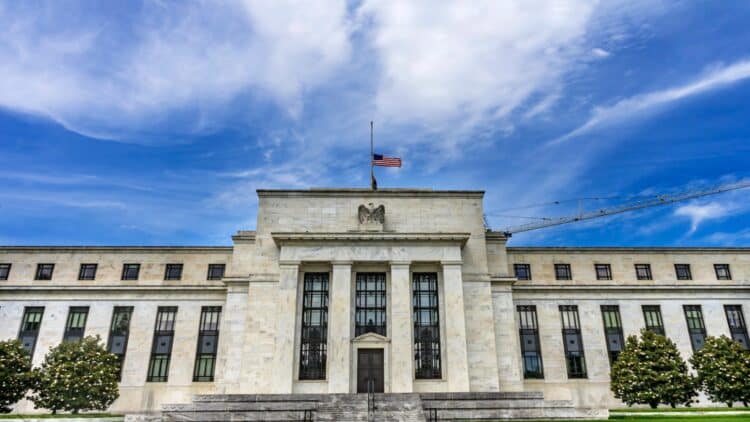The latest financial stability survey conducted by the Federal Reserve shows that there has been a drastic change in risk concerns, which should act as an alarm to all market players. The issue that has taken precedence in financial concerns over the next 12 to 18 months is uncertainty over policies, with 61% of respondents indicating that it is the most significant risk concern.
Policy uncertainty becomes a key financial stability risk
The semiannual “Survey of Salient Risks to Financial Stability” conducted by the Fed has highlighted that uncertainty over monetary policies has topped more familiar considerations such as inflation and interest rates. This is a major shift from past surveys in which trade frictions had dominated the risk environment. The change has come due to concerns over central bank independence and the availability of trustworthy economic data.
The issue of independence in the central bank has recently surfaced within the Fed survey, with authentic concern about possible implications of political influences on monetary policies that might jeopardize market confidence in governance structures. The ongoing shutdown has brought to light data availability as another form of market uncertainty that adds novel dimensions to financial market unpredictability within financial firms.
Data interruption amplifies market uncertainty and volatility
The record-breaking shutdown of the federal government disrupted important economic data releases, which in turn resulted in data gaps that responders pointed to as a novel risk to financial stability. The effect of economic data becoming unavailable or stale with numerous revisions implies that financial market actors are unable to adjust their expectations with precision to reflect economic changes.
Geopolitical risk leads to non-linear shocks in international markets
Geopolitical risk was seen as the second most frequently mentioned risk concern by about half the respondents to the survey as one of the factors causing fragility to financial markets. Geopolitical risk is one area that brings about non-linear shifts to financial markets, unlike other, more predictable concerns such as interest rates and inflation.
The corporate sentiment and investment are sensitive to spikes in geopolitical risk without fundamental shifts, as has been shown in recent research cited in the survey. The current asset prices might be caught off guard by the geopolitical factors that may lead to widespread market repricing due to the close integration of the world’s value chains and funding.
Global trade fragmentation adds baseline risk to geopolitical signaling
The world trade break-up trend and the increase in the use of economic statecraft imply that the baseline risk of geopolitical signaling has risen substantially. Market leaders no longer consider geopolitics as exotic variables but rather as fundamental risk factors that drive assessments of financial stability.
Traditional risks intersect with policy instability concerns
Policy and geopolitical risk are paramount; traditional risk concerns such as persisting inflation, higher term interest rates, and public debt sustainability are still present, though. These current risk factors are viewed within the context of volatility in policy choices and fragile policies in the international arena, rather than standing macro factors on their own.
The coupling of policy uncertainty and global risk amplifies the degree of fugacity by squeezing error margins among policymakers to increase the price companies must pay to be flexible. If continuity in policies and international stability are no longer guaranteed, then all actors must operate with lower buffers, with less leverage among companies, and more capital demands in markets.
The implications found in the Fed survey indicate that there has been a change in the regimes such that the assumptions about the stability of institutions and international order are no longer valid with the same level of confidence. The implications here are clear that it is predictability that will ensure financial resilience rather than instability in the new world.


